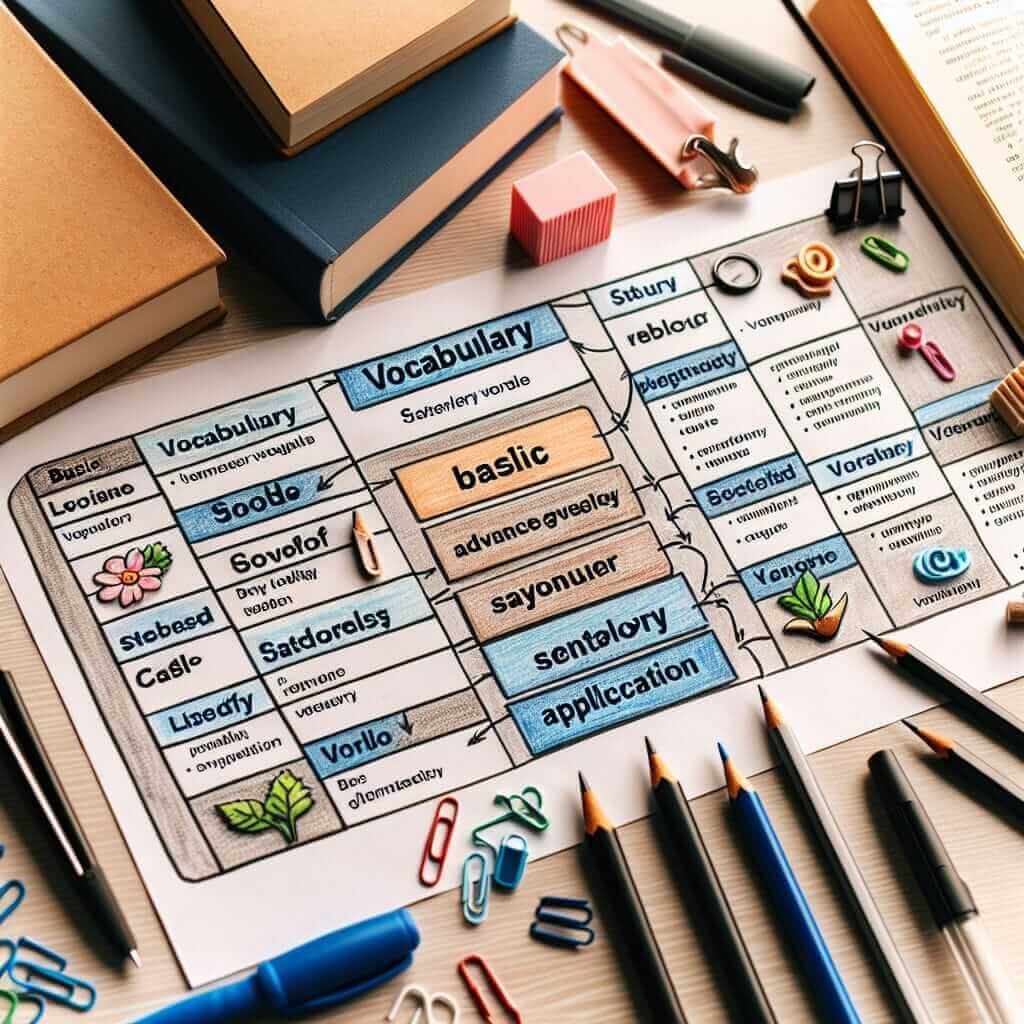As an IELTS instructor with over 20 years of experience, I’ve witnessed firsthand the struggles students face when trying to enhance their vocabulary for the writing section. A strong vocabulary is essential for achieving a high band score in both the IELTS Academic and General Training writing tests. It allows you to express your ideas with precision, clarity, and sophistication, ultimately demonstrating your mastery of the English language.
Understanding the Importance of Vocabulary in IELTS Writing
While grammar and coherence are crucial, examiners specifically look for a wide range of vocabulary used accurately and appropriately. This means going beyond basic words and incorporating less common vocabulary, synonyms, and idiomatic language where suitable.
Effective Strategies to Improve Your IELTS Writing Vocabulary
Let’s delve into some proven methods to bolster your vocabulary for the IELTS writing exam:
1. Read Widely and Strategically
- Focus on IELTS-related topics: Explore articles, journals, and books covering common IELTS themes such as education, technology, environment, and social issues.
- Actively note down new words: Don’t just skim through texts. Keep a dedicated notebook or use flashcards to record unfamiliar words and their definitions.
- Analyze sentence structures: Pay attention to how vocabulary is used in context and try to incorporate similar structures into your own writing.
2. Utilize Word Formation Techniques
- Understand prefixes and suffixes: Learn common prefixes (e.g., “dis-“, “un-“, “pre-“) and suffixes (e.g., “-able”, “-ment”, “-ly”) to expand your word bank.
- Practice transforming words: Experiment with changing verbs to nouns, adjectives to adverbs, etc. For example, “develop” can become “development,” “developed,” or “developing.”
3. Learn Synonyms and Collocations
- Group words by meaning: Instead of memorizing isolated words, create synonym groups for commonly used terms. For example, “good” can be replaced with “excellent,” “outstanding,” or “remarkable.”
- Master collocations: Understand which words naturally go together. For instance, we say “heavy rain” but “strong wind.”
4. Incorporate Idioms and Phrasal Verbs Carefully
- Learn idioms relevant to common IELTS themes: However, avoid using idioms excessively or in inappropriate contexts.
- Understand the meaning and usage of phrasal verbs: These can make your writing more natural and concise. For example, “look into” instead of “investigate.”

Example from IELTS Writing Task 2
Topic: Some people believe that the best way to reduce crime is to give longer prison sentences. Others, however, believe there are better alternative punishments.
Vocabulary Enhancement:
- Instead of “reduce crime,” consider: “combat crime,” “curb criminal activity,” or “deter offenders.”
- Instead of “give longer prison sentences,” use: “impose stricter penalties,” “implement lengthier incarceration periods,” or “enforce harsher sentencing guidelines.”
Tips for Success
- Don’t cram: Consistent vocabulary building over time is more effective than last-minute memorization.
- Use new words in context: Practice writing essays and reports using the vocabulary you’ve learned.
- Get feedback from an experienced teacher: They can help you identify areas where your vocabulary can be improved and ensure you’re using it accurately.
Conclusion
Improving your vocabulary for the IELTS writing exam is an ongoing journey that requires dedication and a strategic approach. By following the tips outlined in this guide, you can confidently enhance your lexical resource and increase your chances of achieving your desired band score. Remember, consistent effort and a genuine passion for language learning are the keys to success!